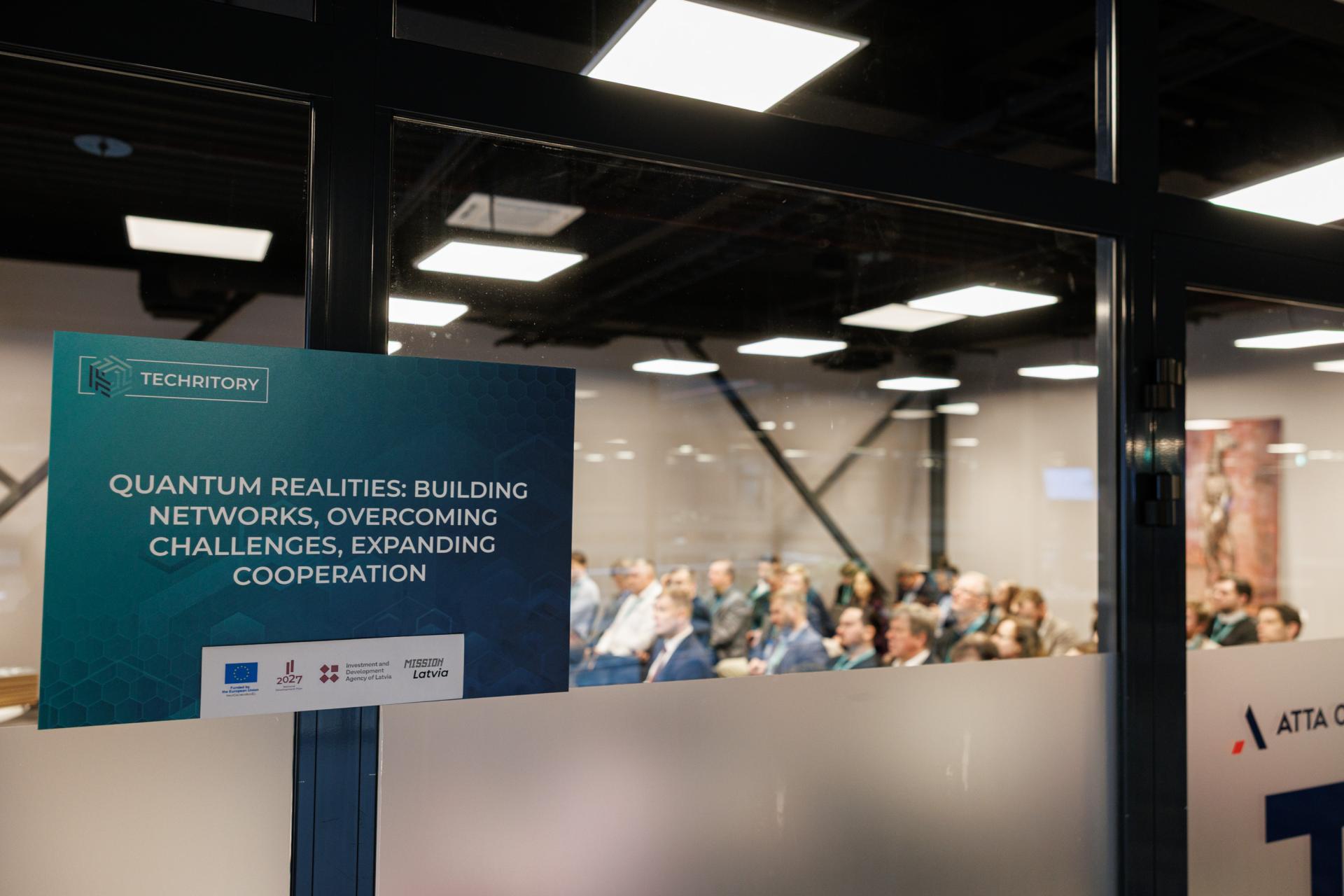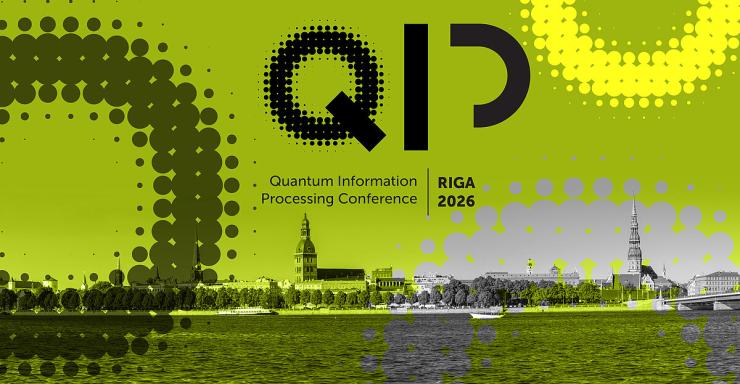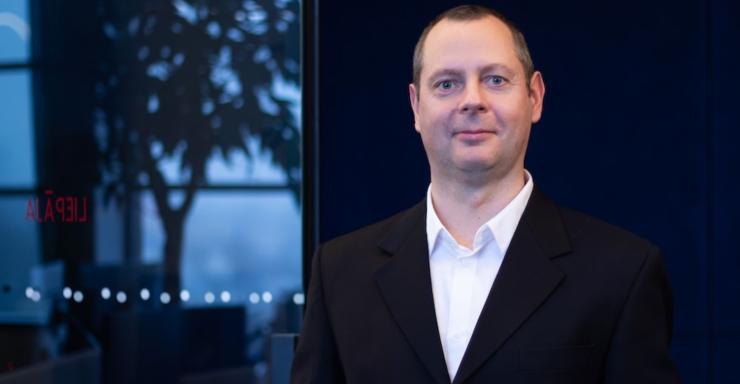Quantum technologies rpresent the next technological revolution, with the potential to transform information technology, defense, medicine, and industry. Although these technologies are still in the development stage, their future importance is already clear – both economically and geopolitically.
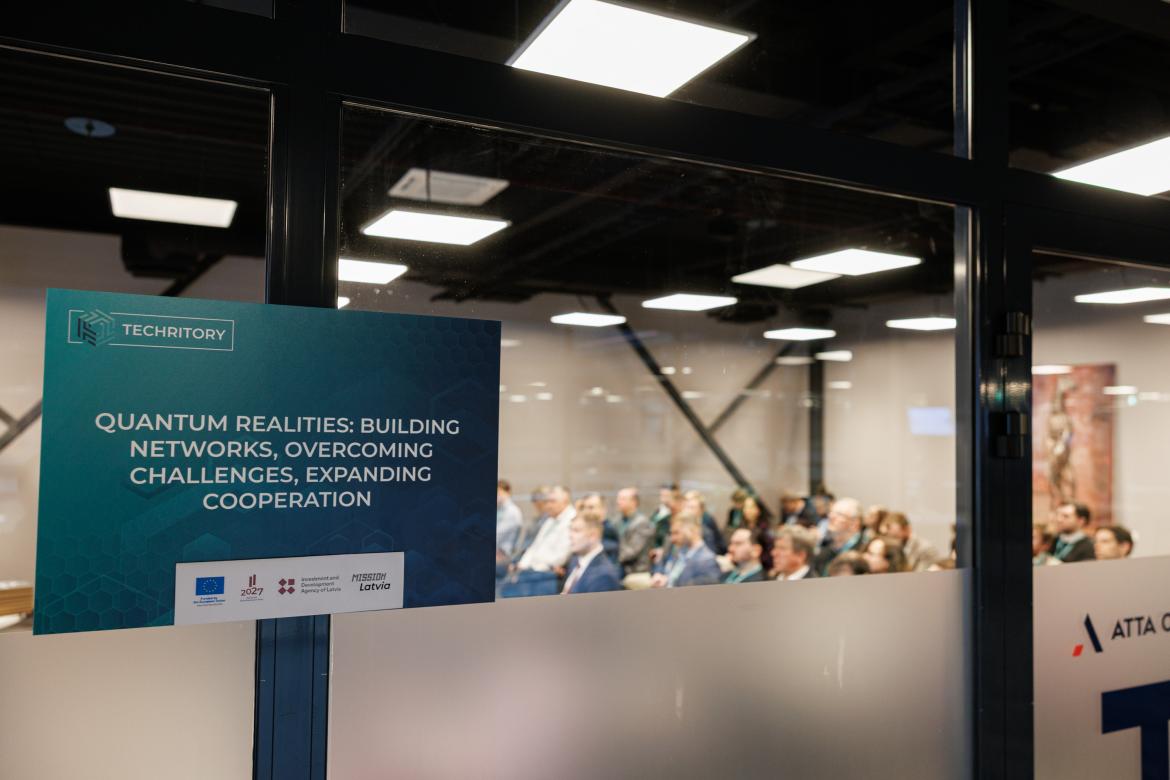
The development of quantum technologies is becoming a significant pillar of Latvia’s – and Europe’s – security and independence. Early collaboration among European countries is essential for shaping a coordinated policy, fostering joint scientific progress, and strengthening a resilient quantum technology ecosystem.
During the Techritory forum, experts and policymakers gathered at the co-creation event “Quantum Realities: Building Networks, Overcoming Challenges, Expanding Cooperation” to discuss the key question: how can Europe strengthen its leadership in quantum technologies through shared investment, infrastructure, and strategy?
Europe’s quantum strategy – here’s what’s in store
Over the past five years, Europe has invested over €2 billion in quantum research and innovation. This effort is guided by the European Quantum Strategy, which focuses on five interconnected areas: research, innovation, infrastructures, ecosystem, and skills. The aim is to consolidate national efforts in the quantum field and position Europe as a global leader in quantum by 2030.
The upcoming milestones are ambitious and include:
- expanding EuroHPC-based quantum systems across more than ten EU countries by 2026, where EuroHPC stands for the European High-Performance Computing Joint Undertaking – a major EU initiative that develops and operates Europe’s supercomputing infrastructure;
- deploying an EU-interconnected secure quantum communication network by 2030;
- and launching a pilot facility for the European Quantum Internet by 2026. This infrastructure will connect terrestrial and space-based quantum systems, enhancing Europe’s digital resilience.
Evijs Taube, Member of the Management Board at LVRTC, stressed the significance of the European Quantum Internet project, which is expected to be created within the next 15 years. If this ambition is fulfilled, then “this [will become] a European thing.” Unlike the internet, which originated in the US, Europe seeks to “do it differently,” ensuring leadership in secure communications built on our own technologies.
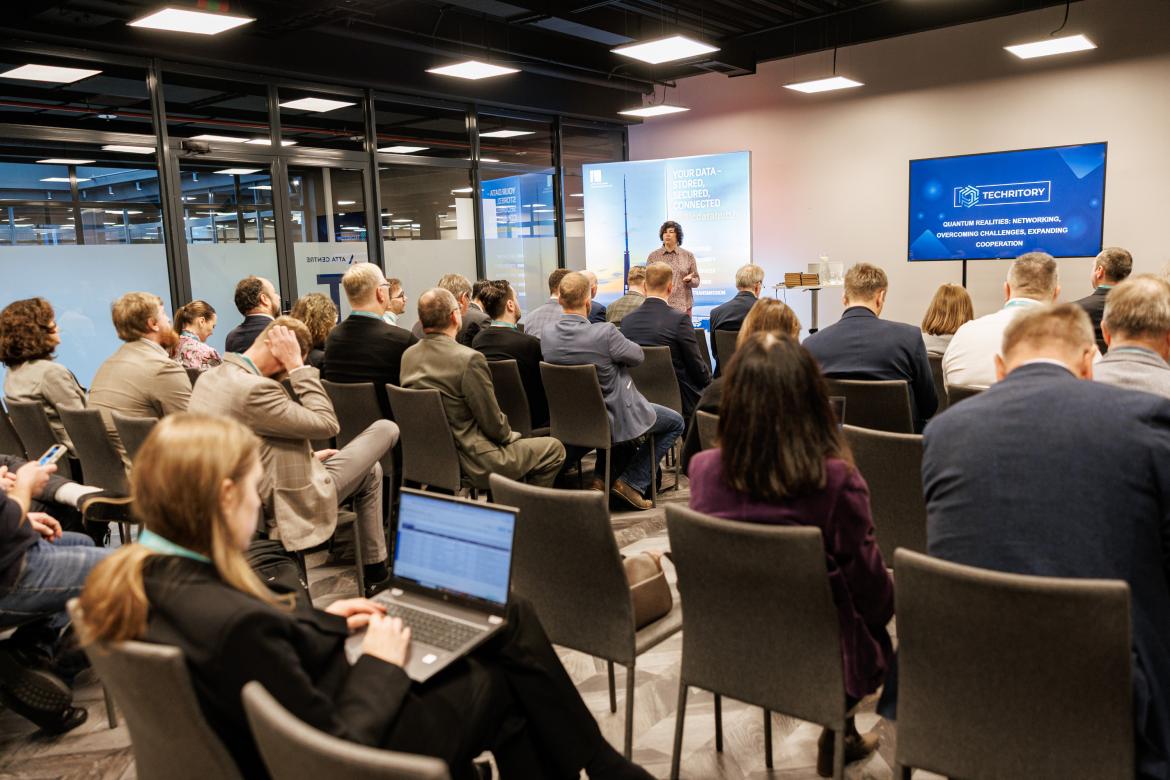
Meanwhile, Sarmīte Mickeviča, senior expert in digitalization at the Ministry of Education and Science of Latvia, highlighted that the next step following the European Quantum Strategy is the creation of the European Quantum Act. It will “devise more concrete steps” toward research coordination, pilot infrastructure, and market deployment. The proposal for the Quantum Act is expected to be presented in 2026 and, as opposed to the quantum strategy, will set out concrete legislative and financial measures to implement Europe’s quantum ambitions. That includes defining how resources are allocated and establishing governance structures.
Latvia’s quantum ambition
Latvia, too, has its quantum ambitions that align with Europe’s. In recent years, 14 Latvian organizations – universities, research institutes, and the public sector – have joined forces under a national Memorandum of Understanding to advance quantum technologies. “The idea was to [pool] together the industry side, the university side, science, and also the state sector,” said Taube.
Another cornerstone of the country’s progress is the Latvian Quantum Initiative, hosted at the University of Latvia. “It supports global and national efforts in the creation and application of quantum technologies,” it says on their website. The goal of this initiative is to take part in the fast-growing quantum technology industry with a “highly skilled staff in high-tech companies, as well as by developing quantum technology startups.”
Mickeviča noted that our national quantum initiative has already surpassed expectations, producing 27 scientific publications and training over 190 students. Its researchers also secured a publication in Nature, further raising Latvia’s international profile.Another ambitious undertaking is the construction of a quantum testbed, led by Riga Technical University in collaboration with EU partners.
As presented by Jurģis Poriņš, Head of the Telecommunications Network Department of the Faculty of Electronics and Telecommunications at RTU, the aim is to develop a versatile infrastructure that supports quantum key distribution (QKD) sessions operating in parallel with classical communication channels within a city’s optical fiber network. Rihards Mūrnieks, who leads the project at RTU, explained that the project also focuses on strengthening the pan-European supply chain by providing an open-source test site for researchers, vendors, and startups to test their devices, software, and innovations in real environments.
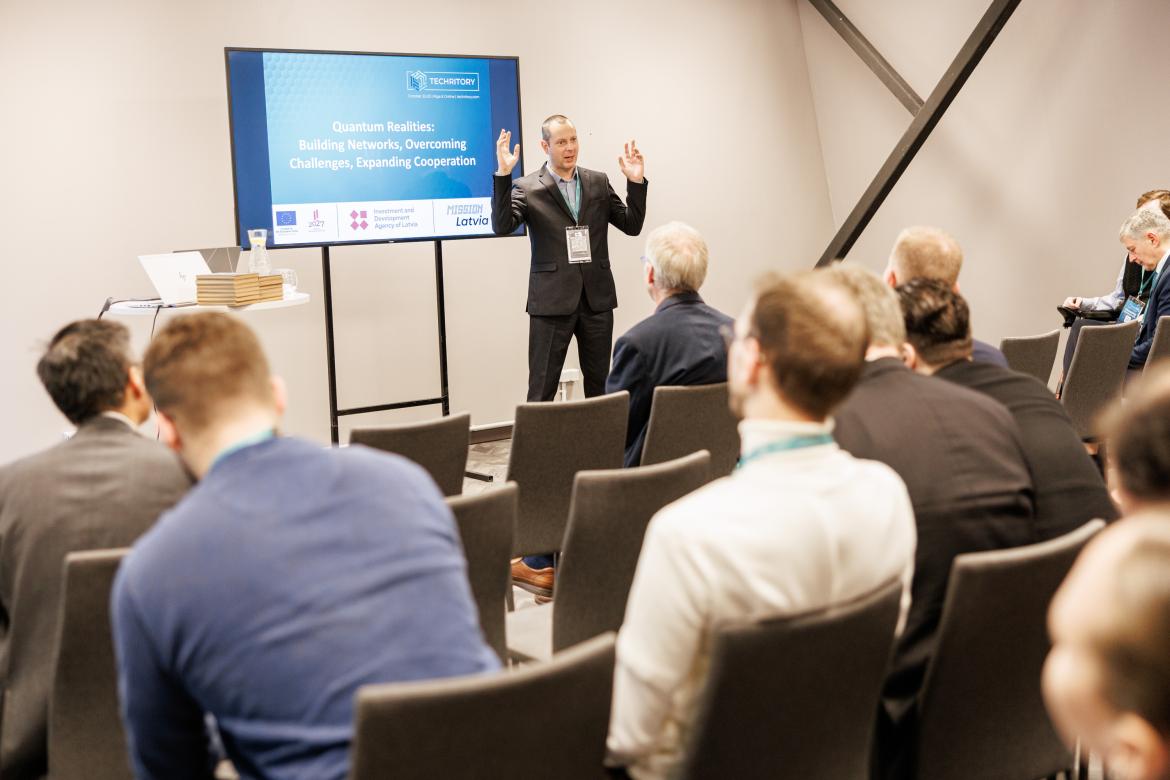
Looking ahead
The regional ambitions in the quantum field are bold – and so are Latvia’s. As Europe increasingly focuses on its technological sovereignty in quantum computing and communications, Latvia is positioning itself to take a leading role in the Baltic and wider Northern European region.
The country’s initiatives, from the national Quantum Initiative to the QKD testbed, show that Latvia not only aims to contribute to Europe’s quantum future but also actively shape it. We have a strong foundation – industry-leading experts, globally renowned research institutions, and an expanding network of academic and industry partners. Now, it’s crucial to ensure that the generation of quantum experts is trained and ready to take the lead.
Techritory is organized by the Electronic Communications Office of Latvia, powered by the Investment and Development Agency of Latvia (LIAA) and the European Union’s Recovery and Resilience Facility. It is created in cooperation with the International Telecommunication Union, strategic partners – LMT, the Nordic Council of Ministers, the City of Hamburg, and the golden partner, Latvia State Radio and Television Centre.
The event was financed with the support of the European Union’s Recovery and Resilience Facility – NextGenerationEU. The views and opinions expressed are solely those of the author(s) and do not necessarily reflect the views of the European Union or the European Commission. Neither the European Union nor the European Commission can be held responsible for them.

